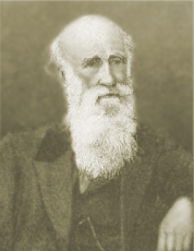The European Union may well be at a cross-roads, facing a serious legitimacy crisis, with its citizens “threatened with an unconscious drift to disharmony, a loss of social cohesion, a recurrence of racism and a deficit of democratic accountability.”
A few years ago lots of patriots thought their country could be part of one bigger unity, and perhaps that could be an and of the internal battles of small groups wanting to divide their country in smaller countries. Hope was put on something which would be like the United States of America with one currency and people living together in peace.
A few years later they feel like their members of parliament have abandoned them and that the dream is nearly going to burst like a soap-bubble.
The Irish president Michael Higgins noted that 2013 was the year of the citizen and highlighted the democratic credentials of the European Parliament, the only directly elected arm of the EU. He said on Wednesday 17 April in the parliament in Strasbourg:
“European citizens are suffering the consequences of actions and opinions of bodies such as rating agencies, which, unlike parliaments, are unaccountable. Many of our citizens regard the response to the crisis as disparate, sometimes delayed, not equal to urgency of the task and showing insufficient solidarity,”
“Many of our citizens in Europe regard the response to the crisis in their lives as disparate, sometimes delayed, not equal to the urgency of the task and showing insufficient solidarity with them in their threatened or actual economic circumstances.
“We cannot allow this [unemployment] to continue,” he said. “There is nothing more corrosive to society and more crushing to an individual than endemic unemployment, particularly among the young.”
In a bid to plug the gap between leaders and electorates, it seems likely that Europe’s biggest political groups will each put up a party candidate for president of the European Commission. At the post-speech press conference with President Higgins, EU parliament chief Martin Schulz threw his weight behind a directly-elected head of the EU executive.
Social Democrat Martin Schulz, president of the EU parliament aided by some new powers and an economic crisis, and his allies received the opportunity to move the parliament again towards the centre of the action.
According to Schulz the European Parliament elections are currently seen by many “as something to bother with if you have five minutes to spare to put a cross on a piece of paper.”
Higgins pointed out, “the citizenry needs to be offered a real choice rather than variations of the same choice.”
Schulz does not seem to have such nice thoughts about the growing European Union. He takes a rather darker line:
“The EU is really threatened by failure,” he says, frowning. “I think we should not underestimate the dramatic reality … Here, or in Brussels, I have the feeling that people are not taking sufficient account of what is going on in Europe … The moment people withdraw their support from an idea, the idea is finished.” The consensus on Europe, he adds, “is in a kind of freefall”.
According to my small mind the problem lie in the urge to grow too quickly and wanting to take new countries in the Union which have not proven to be economically nor politically stable nor democratic. A main problem also is that not enough countries are willing to see themselves as a small link of the European chain. Too many countries still look at themselves as a country on its own instead of being part of one greater country or union state. The continued negative press media making people afraid to invest their savings is not helping the economy our of the dry well. If EU leaders persist in sticking to economic policies that throttle growth and lengthen the dole queues, accompanied by the language of technocracy, the Union will face an unprecedented crisis of legitimacy. Also when they take the trust away by endangering the savings of the people and by not keeping their words, changing laws so that previous promises are broken, people will totally loose not only interest but also confidence in the system.
The parliament is the only directly elected EU institution but it has not enough to say or the individual countries listen not enough to it or keep doing their own thing and wanting their own course to continue. More people could believe in the EU when the governing comities of the individual countries would show more respect to the governing European Parliament members. The European Institution has also more chance of engaging the public when they feel the measure presented are really taken and followed up and that their tax-money is not just spend at hours of debates without any results.
Today the people will not trust the banks nor the politicians any more because they feel being left in the cold by those politicians which have often so many connections with the financial world that it is part of their extra income and why they protect lots of those people who fooled and ripped off many citizens. This mistrust for the economical and political system has created a political class that is completely disconnected from the rest of the community.
Schulz’s brand of frank talk is the kind of thing that infuriates many national politicians, who still instinctively dismiss European parliamentarians as second-raters. But he has plans to elevate himself to the front rank of European leaders. His term as president of the parliament runs out next year. Though he has not yet officially declared his hand, it is widely believed he will then be a candidate to be president of the European Commission, the EU’s powerful executive, currently headed by the Portuguese politician José Manuel Barroso. New rules that give a much larger role to the European Parliament in the election of the commission president may well work in his favour.
Please do find the interesting interview by Gideon Rachman at the Dinner with the FT: Martin Schulz.
+++
Related articles
- [Analysis] In search of Europe’s prophets (euobserver.com)
By most accounts, President Higgins gave one of the most elegant and eloquent speeches the Parliament has heard in recent years in Strasbourg on Wednesday (17 April). A cynic might argue that the competition has not been fierce, but it was hard not to be moved by a speech that had clearly been tenderly crafted to be enjoyed rather than endured. The standing ovation MEPs gave him at the end was spontaneous and genuine. - European Parliament chief Schulz slams Cyprus bailout process as ‘no way to do business in EU’ (ekathimerini.com)European Parliament President Martin Schulz has welcomed the bailout deal for Cyprus but labelled the way it was arrived at as “no way to do business in Europe.”
“It has brought us back from the edge,” said Schulz in a statement in the wake of Cyprus, the eurozone and the International Monetary Fund agreeing a deal that would see Nicosia receive a 10-billion-euro bailout in return for a painful overhaul of its banking sector that would inflict large losses on some depositors.
- Brussels Parliament rejects the EU Budget (timesofmalta.com)The European Parliament today overwhelmingly rejected the EU’s seven-year €960 billion budget, agreed last month by the 27-heads of government after intense brokering.
The EU had been split between those who wanted spending cuts and those who wanted investment for economic growth.
- Muscat holding lunchtime meeting with Schulz (timesofmalta.com)
Prime Minister Joseph Muscat today gave an assurance that the €1.12 billion allocated to Malta in the EU’s Budget talks are not in risk.Addressing a joint press conference with the president of the European Parliament, Martin Schulz, after a lunchtime meeting, Dr Muscat reacted to yesterday’s EP resolution which was interpreted as a rejection of the EU Budget (The multi-annual financial framework). The resolution criticised aspects of negotiated deal but was not an outright rejection of the seven year budget which still has to be voted upon by the EP after further negotiations. - Greedy MEPs throw out David Cameron’s EU budget cuts and now demand even more money (express.co.uk)
The plan, pushed through by David Cameron which would ensure the first ever real-terms cut to the EU’s long-term spending plans was rejected by the euro MPs in a 506-161 vote.
+
Leader of the European Conservatives Martin Callanan accused a majority of MEPs of “flying in the face of public opinion” by dismissing calls for belt-tightening and even pressing for new EU tax-raising powers to fund spending.
+President of the European Parliament, Martin Schulz remained defiant against cuts, he said: “This important resolution (rejecting the austerity budget) paves the way for possible negotiations with the council (EU governments) on the long-term EU budget 2014-20.“The European Parliament cannot accept the proposal from the member states without the fulfilment of certain essential conditions. There must be maximum overall flexibility and an ambitious agreement on own resources (raising direct taxes to finance the EU budget).”
- Michael D Higgins gets standing ovation at EU Parliament – ‘we cannot ignore the suffering of Europeans’ (irishcentral.com)
Higgins reminded the Union that its founding treaties were originally founded on values – “Respect for personal dignity; freedom; democracy; equality; the rule of law and respect for human rights,” and continued to voice how citizens need reassurance that the Union will keep faith with these founding treaties. - Europe more than `an economic space’, President tells European Parliament (irishtimes.com)
“We are the inheritors of a profoundly important set of European values – Greek democracy, Roman law, the Judeo-Christian tradition, the Reformation, the Enlightenment, the great democratic revolution that began in France, ” he said. “Europe is therefore more than an economic space of contestation in which our citizens are invited or required to deliver up their lives in the service of an abstract model of economy and society whose core assumptions they may not question or put to democratic test in elections.”
































 Biblestudents – Bijbelstudenten
Biblestudents – Bijbelstudenten 0 + Bloggers for Peace
0 + Bloggers for Peace Free Christadelphian Ecclesia
Free Christadelphian Ecclesia Hoop tot Leven – Redding in Christus
Hoop tot Leven – Redding in Christus Vrije Broeders in Christus (Free Flemish Christadelphians on Wordpress)
Vrije Broeders in Christus (Free Flemish Christadelphians on Wordpress)















Pingback: Migrants to the West #1 | Marcus' s Space
Pingback: Migrants to the West #2 | Marcus' s Space